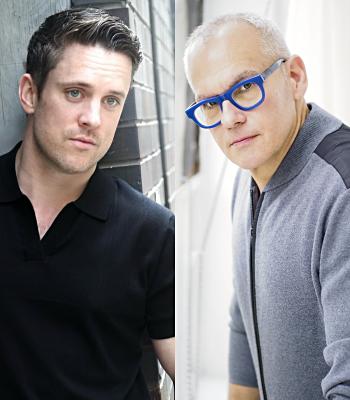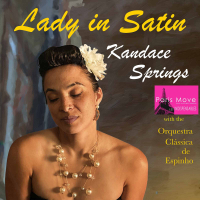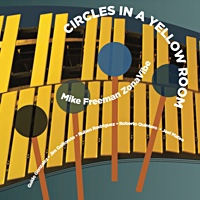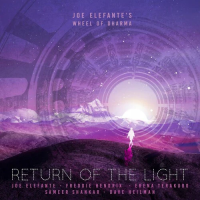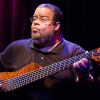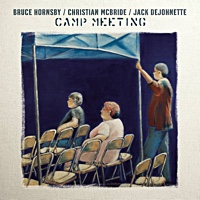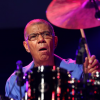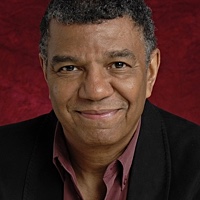Home » Search Center » Results: Russell Perry
Results for "Russell Perry"
Silenced in Their Prime - Eric Dolphy & Booker Little (1961 - 1964)

by Russell Perry
From his first recordings with Chico Hamilton in 1958 until his untimely death from misdiagnosed diabetic shock in 1964, Eric Dolphy was limited to only six years in which to record the music that has defined his extraordinary legacy. Previously, in this series, we have heard from Dolphy's great 1960 recording, Far Cry and his contributions ...
Charles Mingus in the 1960s (1959 - 1963)

by Russell Perry
Charles Mingus completed the 1950s with an astonishing series of releases in 1959 -Blues and Roots, followed by Mingus Ah Um and finally, Mingus Dynasty. He kept up this pace for several years culminating in 1963 with Mingus Mingus Mingus Mingus Mingus and his masterwork, The Black Saint and The Sinner Lady. We have some live ...
School of Trane - Wayne Shorter, Archie Shepp, Charles Lloyd, Pharoah Sanders (1964 - 1969)

by Russell Perry
No tenor player cast a larger shadow over the 1960's than John Coltrane. Arguably, that time frame could be expanded to include all decades since, as well. Several contemporary tenor players who emerged as singular and important voices in the 1960s were specifically in his debt: his friend and colleague -Wayne Shorter, his protégé —Archie Shepp, ...
John Coltrane: The Final Act (1961-1967)

by Russell Perry
John Coltrane is undoubtedly one of the most influential players in the history of jazz, yet his important work fits within a brief twelve-year period (1955--1967). Previously in this series we have covered his work in the 1950s with Miles Davis for Prestige and Columbia, his blowing sessions on Prestige, his solo work with Blue Note ...
The Legacy of Jimmy Giuffre and Lennie Tristano (1961 - 1969)

by Russell Perry
Clarinetist Jimmy Giuffre and pianist Lennie Tristano were heavily influential in the musical explorations of the 1960s. The Jimmy Giuffre Trio recorded a series of records in the early 1960s now seen as significant milestones in improvisational music, although they made no commercial impact at the time. His trio-mates-- pianist Paul Bley and bassist Steve Swallow--have ...
Association for the Advancement of Creative Musicians (1966 - 1969)

by Russell Perry
As hard bop was running out of steam and rock & roll was becoming the music of choice for the younger audience, many musicians were building on the innovations of Ornette Coleman, Cecil Taylor and John Coltrane, creating a new approach to jazz—Free Jazz (after Coleman's 1960 release of the same name) or, simply, the avant-garde. ...
Hard Bop Trumpet - Kenny Dorham, Dizzy Reece, Blue Mitchell (1962 - 1964)

by Russell Perry
This is the final hour of a four-part sequence featuring important tenor players and trumpeters who propelled hard bop into the 1960s. In this hour, we will continue with the Trumpet Players, Part 2, featuring lesser-known players—unsung veteran Kenny Dorham who recorded with both Dizzy and Bird in the 1940s, London-based Jamaican trumpet player Dizzy Reece, ...
Hard Bop Trumpet - Lee Morgan, Freddie Hubbard, Donald Byrd (1960 - 1967)

by Russell Perry
In this portion of Jazz at 100, we are featuring tenor players and trumpeters who propelled hard bop into the 1960s. In this hour, we will continue with the Trumpet Players, Part 1, featuring three players who apprenticed in the Jazz Messengers: Lee Morgan—a Blue Note leader since 1956, Freddie Hubbard—who made his debut as a ...
Hard Bop Tenor - Jimmy Heath, Benny Golson, Sonny Rollins (1959 - 1964)

by Russell Perry
In this portion of Jazz at 100, we are featuring tenor players and trumpeters who propelled hard bop into the 1960s. In this hour, we will continue with the Tenor Players, Part 2, featuring Jimmy Heath, Benny Golson, and Sonny Rollins, three tenor players who have impacted the music over the past six decades.
Hard Bop Tenor - Harold Land, Teddy Edwards, Hank Mobley (1956 - 1963)

by Russell Perry
"Hard bop both needed and got a kind of second wind in the early sixties, and this had something to do with Ornette Coleman's rejection of conventional chord changes, but it had far more to do with developments inside the school: Miles Davis's Kind of Blue, Coltrane's evolution, and the influences of Thelonious Monk and Charles ...

